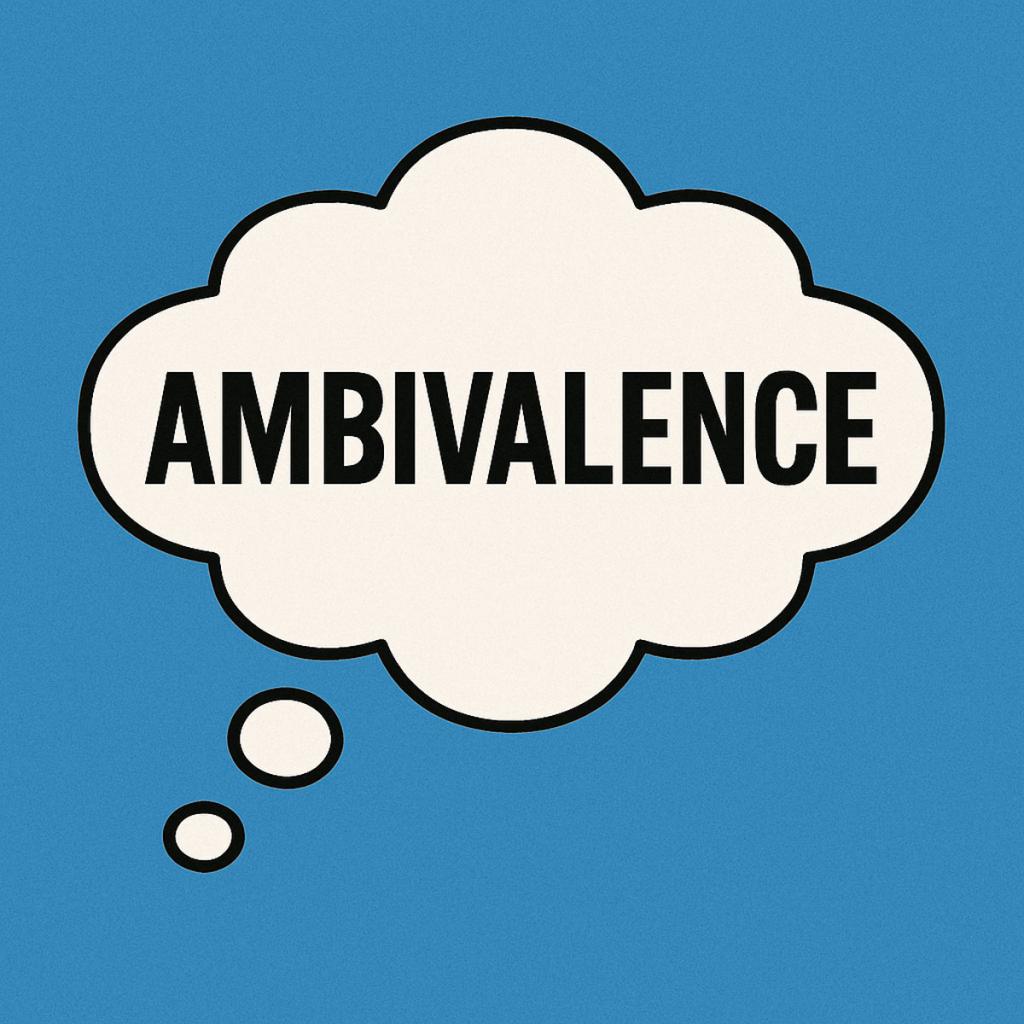
I tend to have a difficult time falling and/or staying asleep at night when Jeanne is away. She’s been away the past week for work—I’ve found that sometimes playing a podcast on relatively low volume on my phone often puts me to sleep within ten minutes. My phone automatically shifts to an unplayed episode of either the same podcast or one of the other twenty or so podcasts I have bookmarked and listen to semi-regularly. I usually partially wake up at least two or three times in the night. Each time I’ll hear a podcast episode playing other than the one I began the night with. Either too asleep or too lazy to do anything other than fall back to sleep, my phone continues to cycle through podcast episodes without anyone listening.
Tuesday night I fell asleep to the latest episode of “The Moth”; I woke up around 6:00 on Wednesday morning (my usual waking time) in the middle of an episode of “Hidden Brain,” hosted by Shankar Vedantam, that originally aired in 2022. The name of the episode was “Emotions 2.0: The Benefits of Mixed Emotions.” Vedantam’s guest was psychologist Naomi Rothman, a professor at Lehigh University.

The conversation was so interesting that I continued listening to the episode as I took Bovina out for her morning walk and as I walked up to school for the workday. The focus of the conversation was the mixed emotion “ambivalence,” the state of having simultaneous and contradictory attitudes or feelings (such as attraction and repulsion) toward something or someone. Toward the end of the episode, the conversation made me think about the uncertainties and doubts that are woven through the life of faith in new ways.
At the outset, it’s important to note that “ambivalent” doesn’t mean “apathetic.” The ambivalent person does care, but is torn between contradictory possibilities, while the apathetic person generally doesn’t give a shit. Still, ambivalence tends to have negative connotations. We live in a culture that demands certainty and tends to see things in terms of black-and-white, even in cases when ambivalence might be more appropriate. No one wants a physician who is definitive and certain about what is wrong with you, but is ambivalent about the proper course of action going forward. A politician who appears ambivalent about an issue or who has changed her mind over the years about it is considered to be weak, indecisive, or a flip-flopper. People are likely to see an ambivalent person as less dominant and confident than a happy person, an angry person, or even someone who is neutral.
For the ambivalent person, the subjective and internal conflict is uncomfortable, a feeling that the person will often seek to get rid of by choosing to act on one side of the conflict or the other, even without sufficient supporting evidence. Naomi Rothman’s research, however, reveals that there is a great deal more to the story of ambivalence than just an emotion that can be both uncomfortable and can be annoying to friends, family, and colleagues.
Research shows that ambivalence frequently arises in the context of circumstances or situations that are unfamiliar or highly complex. Emotions provide us with signals indicating how to respond to the world; ambivalence prompts a person not to make premature judgments or to act quickly just in order to get rid of an uncomfortable state of being. In other words, feeling emotional ambivalence can make a person more cognitively flexible. Vedantam and Rothman discus several ways in which ambivalence can be a valuable asset in leadership, even though we stereotypically look for decisiveness at all costs in both our business and political leaders.
Toward the latter part of the interview, Vendantam turned the conversation away from leadership qualities toward my wheelhouse, asking “What’s the relationship between experiencing ambivalence and being able to derive greater meaning from our existence?” Rothman answers that according to current research,
When you have mixed emotions such as ambivalence, perhaps in the face of contradictory goals, you also are more likely to experience eudaimonic wellbeing, which is a form of wellbeing that is rooted in meaning making.
I wasn’t expecting to hear about the concept of eudaimonia or human flourishing, the centerpiece of Aristotle’s ethical theory, in a contemporary podcast, but it makes sense. Aristotle understood the complexities of human life and resisted the common temptation in moral theory to reduce things to principles and rules. As I tell my students when working with them through Aristotle’s ethic, eudaimonia is not something to achieve. It is something that one lives. And emotions such as ambivalence are appropriate tools for the journey.
The life of faith, of course, is a continuing exercise in meaning making in the midst of issues and commitments that doggedly resist certainty and confidence. Faith traditions and their frameworks are full of paradoxes, conflicting claims that equally demand our commitment. Jesus is fully divine and fully human. A good and loving God created a world full of suffering and despair. Just to name a couple. The tendency is to endorse one side of the contradiction with conviction, then either ignore the other side or morph it into something that fits with what we have committed to.
Rothman, however, suggest something called the “paradox mindset” that is a compelling alternative to forced certainty. This is where you
Consider the world with a both-and approach instead of an either-or approach. It can be really helpful for dealing with competing demands. Although tensions arise when you have these competing demands, the tensions themselves are not the problem. The problem is people’s mindset. If people believe that addressing one demand means neglecting another, then they’re going to struggle. But with a paradoxical mindset, people accept and learn to live with the tensions. They might need the tension to thrive.
I just listened to this podcast this morning, so I’m sure I’ll be making more connections as I ruminate. At this point, it strikes me that cultivating a paradox mindset in one’s faith and embracing the notion of an ambivalent faith is an attractive possibility.
One of my favorite writers on matter of faith and spirit is Anne Lamott; she has made many appearances on this blog as well as in my classes over the years. In her many books she shows a remarkable comfort with paradox in all aspects of life, including faith—her most recent book published last year, Somehow: Thoughts on Love is no exception. She regularly observes how our expectations of what God will do and what actually happens are often not only not in synch, but are actually opposites.
We are the ones we’ve been waiting for. No one is going to come save us from our deepest fears. This is so incredibly disappointing.
I don’t even know what it is I pray to sometimes—let’s say to whatever made the trees and whatever hears my heart. I said to this power, “You think you’re so big? Here, have a go at it.”
Life is such a mystery that you have to wonder if God drinks a little.
If I were in charge of things, I would hand God a magic wand, but I guess the magic wand turns out to be worried old us.
Above everything else, above all of our attempts to tame divine wildness, God is mystery. God is a paradox. An ambivalent faith is probably the most appropriate response.













